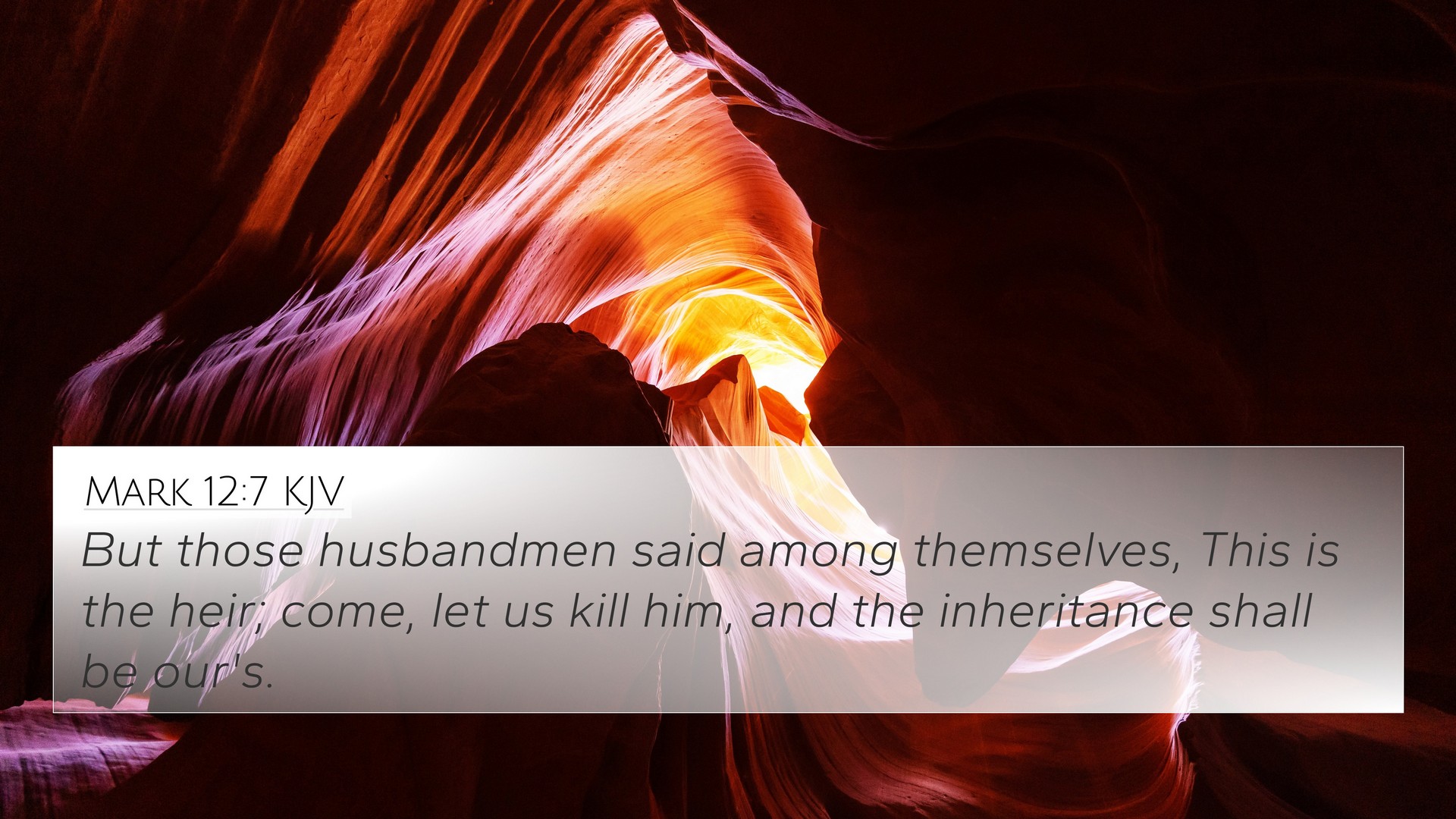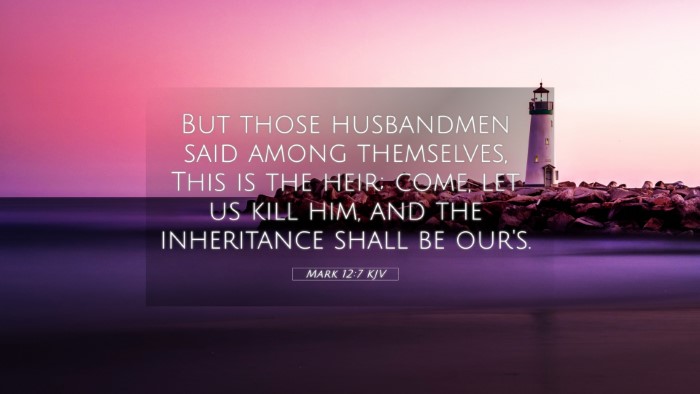This section features a detailed cross-reference designed to enrich your understanding of the Scriptures.
Below, you will find carefully selected verses that echo the themes and teachings related to Mark 12:7 KJV. Click on any image to explore detailed analyses of related Bible verses and uncover deeper theological insights.
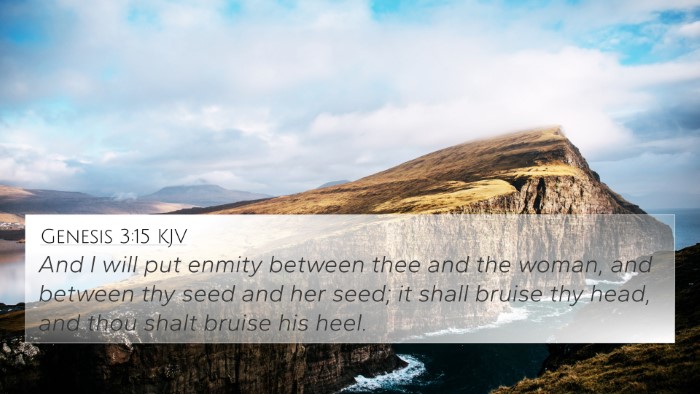 Genesis 3:15 (KJV) »
Genesis 3:15 (KJV) »
And I will put enmity between thee and the woman, and between thy seed and her seed; it shall bruise thy head, and thou shalt bruise his heel.
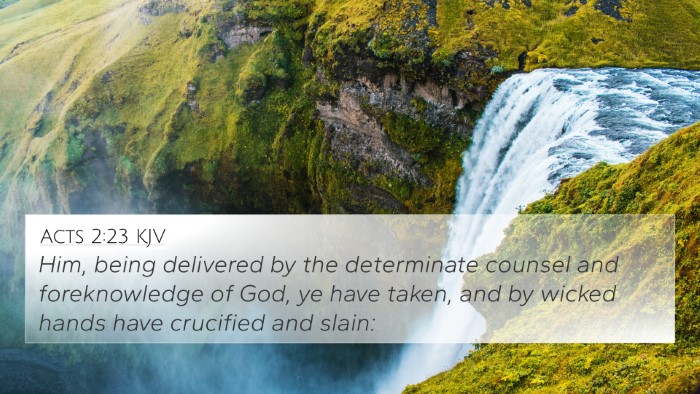 Acts 2:23 (KJV) »
Acts 2:23 (KJV) »
Him, being delivered by the determinate counsel and foreknowledge of God, ye have taken, and by wicked hands have crucified and slain:
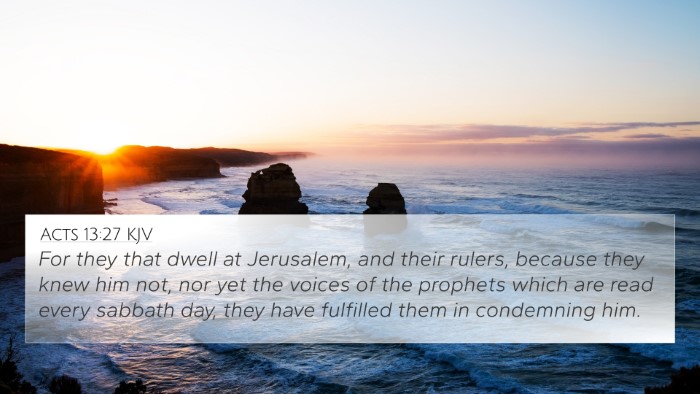 Acts 13:27 (KJV) »
Acts 13:27 (KJV) »
For they that dwell at Jerusalem, and their rulers, because they knew him not, nor yet the voices of the prophets which are read every sabbath day, they have fulfilled them in condemning him.
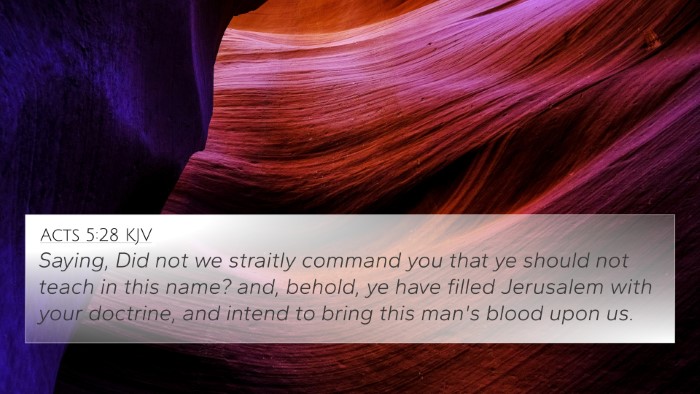 Acts 5:28 (KJV) »
Acts 5:28 (KJV) »
Saying, Did not we straitly command you that ye should not teach in this name? and, behold, ye have filled Jerusalem with your doctrine, and intend to bring this man's blood upon us.
 John 11:47 (KJV) »
John 11:47 (KJV) »
Then gathered the chief priests and the Pharisees a council, and said, What do we? for this man doeth many miracles.
 Mark 12:12 (KJV) »
Mark 12:12 (KJV) »
And they sought to lay hold on him, but feared the people: for they knew that he had spoken the parable against them: and they left him, and went their way.
 Matthew 2:16 (KJV) »
Matthew 2:16 (KJV) »
Then Herod, when he saw that he was mocked of the wise men, was exceeding wroth, and sent forth, and slew all the children that were in Bethlehem, and in all the coasts thereof, from two years old and under, according to the time which he had diligently enquired of the wise men.
 Matthew 2:3 (KJV) »
Matthew 2:3 (KJV) »
When Herod the king had heard these things, he was troubled, and all Jerusalem with him.
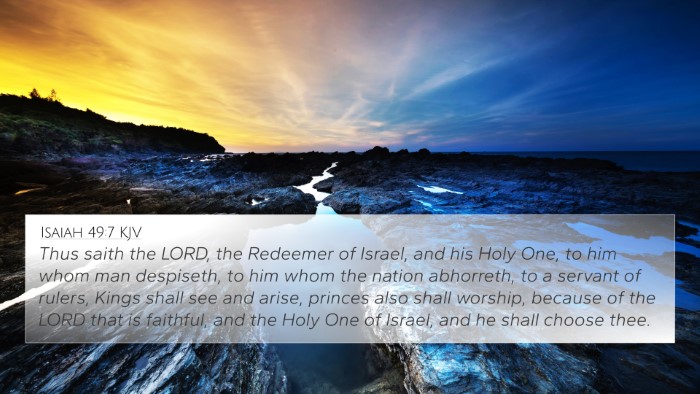 Isaiah 49:7 (KJV) »
Isaiah 49:7 (KJV) »
Thus saith the LORD, the Redeemer of Israel, and his Holy One, to him whom man despiseth, to him whom the nation abhorreth, to a servant of rulers, Kings shall see and arise, princes also shall worship, because of the LORD that is faithful, and the Holy One of Israel, and he shall choose thee.
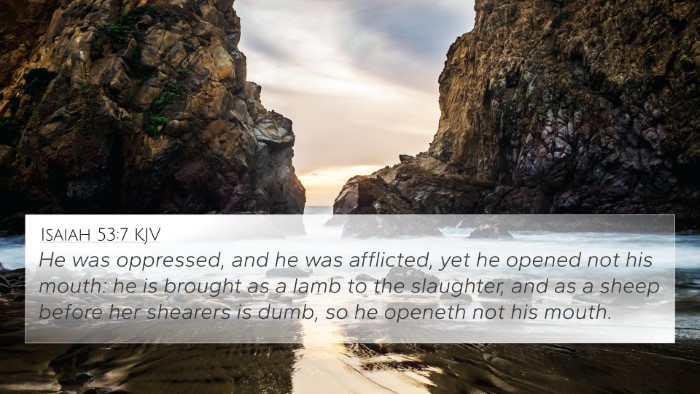 Isaiah 53:7 (KJV) »
Isaiah 53:7 (KJV) »
He was oppressed, and he was afflicted, yet he opened not his mouth: he is brought as a lamb to the slaughter, and as a sheep before her shearers is dumb, so he openeth not his mouth.
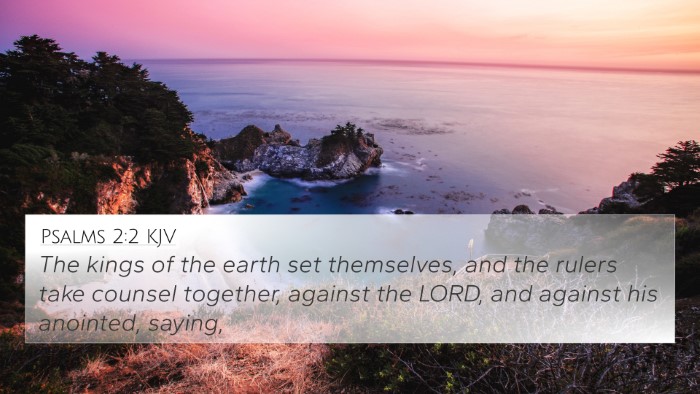 Psalms 2:2 (KJV) »
Psalms 2:2 (KJV) »
The kings of the earth set themselves, and the rulers take counsel together, against the LORD, and against his anointed, saying,
 Genesis 37:20 (KJV) »
Genesis 37:20 (KJV) »
Come now therefore, and let us slay him, and cast him into some pit, and we will say, Some evil beast hath devoured him: and we shall see what will become of his dreams.
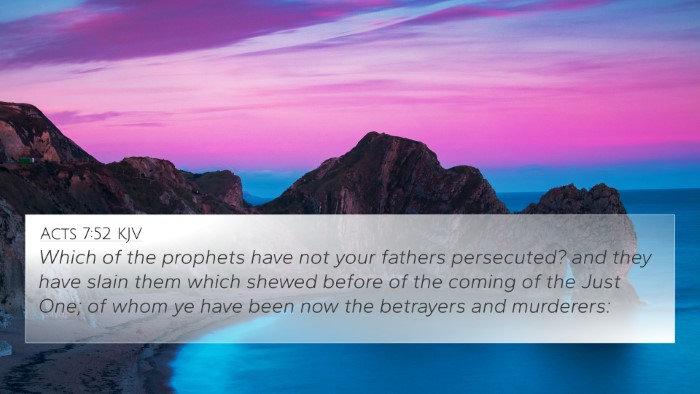 Acts 7:52 (KJV) »
Acts 7:52 (KJV) »
Which of the prophets have not your fathers persecuted? and they have slain them which shewed before of the coming of the Just One; of whom ye have been now the betrayers and murderers:
